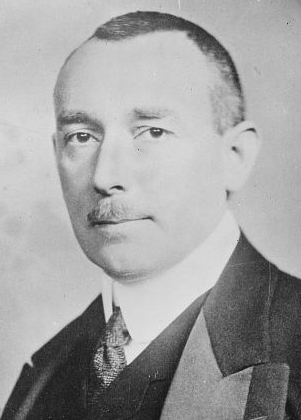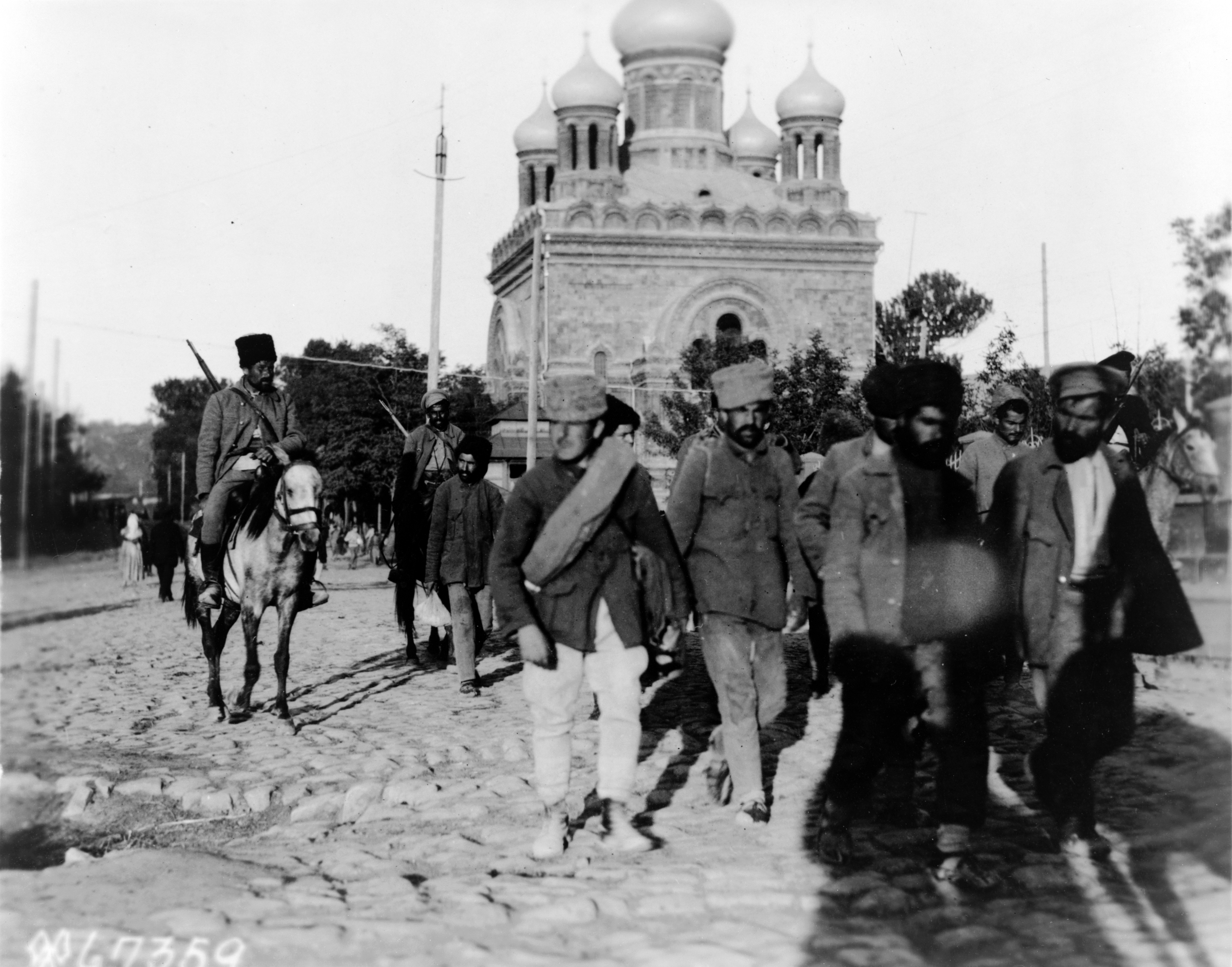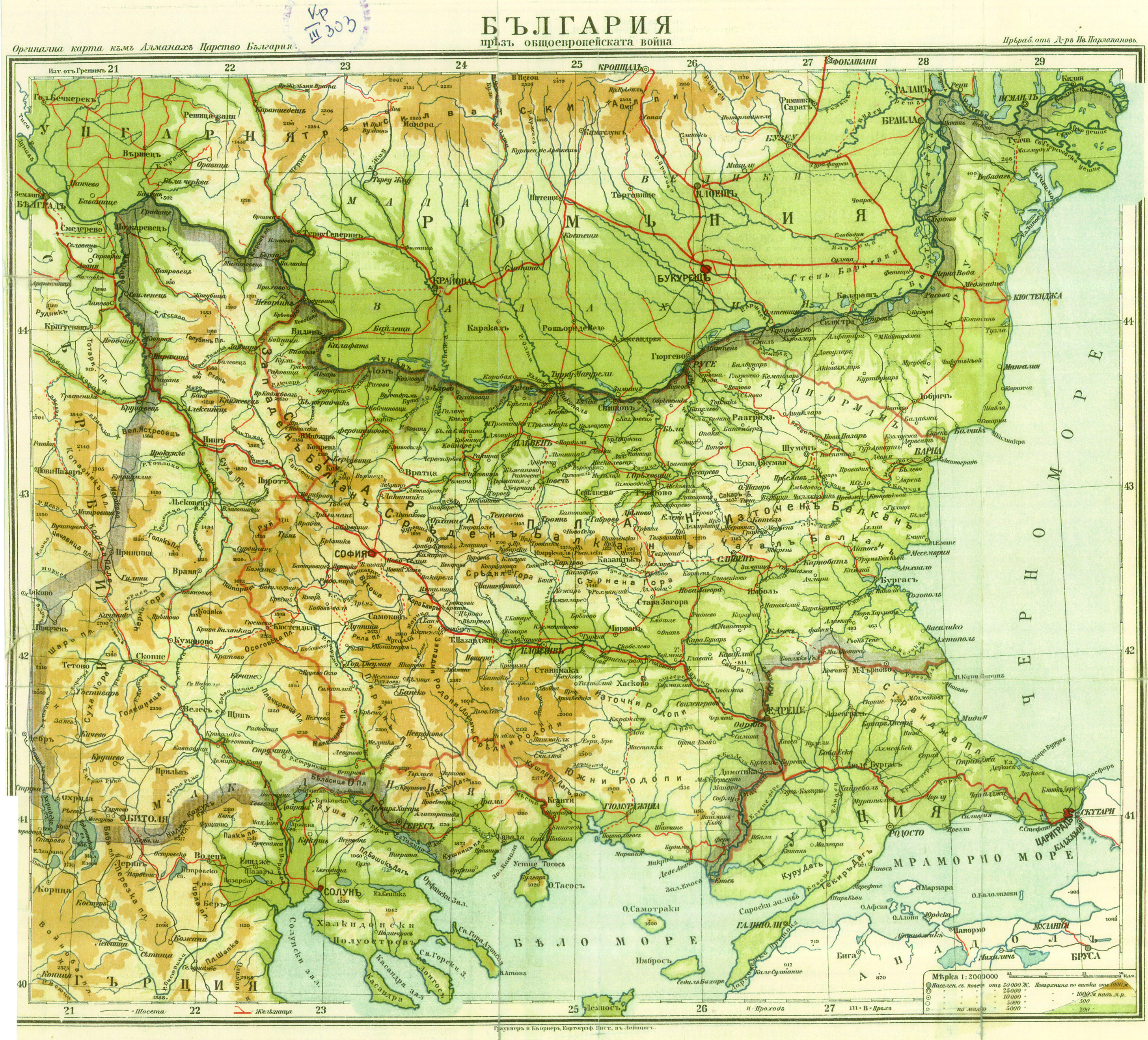|
Spa Conference (13–15 August 1918)
The Spa conference of 13–15 August 1918 was a critical meeting between the German and Austro-Hungarian monarchs during World War I. This conference was significant as it marked a shift in the Central Powers' approach, with civil officials beginning to recognize the improbability of a military victory. The German EmpireBetween 1871 and 1945 the official name of the German national state was Deutsches Reich. and its allies were increasingly exhausted, and recent offensives had failed on the Marne and the Piave in Italy. This situation, coupled with the massive arrival of American troops reinforcing the Entente forces, led the German Empire and the Austro-Hungarian dual monarchy to seriously consider the prospect of a compromise peace. This was the third such conference held in Spa, the headquarters of the Oberste Heeresleitung (OHL),Supreme Command of the Army. since the beginning of 1918. It followed previous meetings on 12 May 1918, and a second conference on 2 July 1918. ... [...More Info...] [...Related Items...] OR: [Wikipedia] [Google] [Baidu] |
World War I
World War I or the First World War (28 July 1914 – 11 November 1918), also known as the Great War, was a World war, global conflict between two coalitions: the Allies of World War I, Allies (or Entente) and the Central Powers. Fighting took place mainly in European theatre of World War I, Europe and the Middle Eastern theatre of World War I, Middle East, as well as in parts of African theatre of World War I, Africa and the Asian and Pacific theatre of World War I, Asia-Pacific, and in Europe was characterised by trench warfare; the widespread use of Artillery of World War I, artillery, machine guns, and Chemical weapons in World War I, chemical weapons (gas); and the introductions of Tanks in World War I, tanks and Aviation in World War I, aircraft. World War I was one of the List of wars by death toll, deadliest conflicts in history, resulting in an estimated World War I casualties, 10 million military dead and more than 20 million wounded, plus some 10 million civilian de ... [...More Info...] [...Related Items...] OR: [Wikipedia] [Google] [Baidu] |
Charles I Of Austria
Charles I (, ; 17 August 1887 – 1 April 1922) was Emperor of Austria, King of Hungary (as Charles IV), and the ruler of the other states of the Habsburg monarchy from November 1916 until the monarchy was abolished in November 1918. He was the last of the monarchs belonging to the House of Habsburg-Lorraine to rule over Austria-Hungary. The son of Archduke Otto of Austria and Princess Maria Josepha of Saxony, Charles became heir presumptive of Emperor Franz Joseph when his uncle Archduke Franz Ferdinand of Austria was assassinated in 1914. In 1911, he married Princess Zita of Bourbon-Parma. Charles succeeded to the thrones in November 1916 following the death of his great-uncle, Franz Joseph. He began secret negotiations with the Allies, hoping to peacefully end the First World War, but was unsuccessful. Despite Charles's efforts to preserve the empire by returning it to federalism and by championing Austro-Slavism, Austria-Hungary hurtled into disintegration: Czechoslovak ... [...More Info...] [...Related Items...] OR: [Wikipedia] [Google] [Baidu] |
Czechoslovakia
Czechoslovakia ( ; Czech language, Czech and , ''Česko-Slovensko'') was a landlocked country in Central Europe, created in 1918, when it declared its independence from Austria-Hungary. In 1938, after the Munich Agreement, the Sudetenland became part of Nazi Germany, while the country lost further territories to First Vienna Award, Hungary and Trans-Olza, Poland (the territories of southern Slovakia with a predominantly Hungarian population to Hungary and Zaolzie with a predominantly Polish population to Poland). Between 1939 and 1945, the state ceased to exist, as Slovak state, Slovakia proclaimed its independence and Carpathian Ruthenia became part of Kingdom of Hungary (1920–1946), Hungary, while the German Protectorate of Bohemia and Moravia was proclaimed in the remainder of the Czech Lands. In 1939, after the outbreak of World War II, former Czechoslovak President Edvard Beneš formed Czechoslovak government-in-exile, a government-in-exile and sought recognition from the ... [...More Info...] [...Related Items...] OR: [Wikipedia] [Google] [Baidu] |
Treaty Of Berlin (August 27, 1918)
The Treaty of Berlin of 27 August 1918 was an agreement signed after several months of negotiations between representatives of the early Russian Soviet Federative Socialist Republic (RSFSR, colloquially known as 'Bolshevik Russia') and the German Empire (or 'Reich'). This treaty completed and clarified several political and economic clauses of the Treaty of Brest-Litovsk (3 March 1918), which had been left out of the winter 1917–1918 negotiations. The latter were aimed at ending the war between the Central Powers and Soviet Russia and clarifying the extent of Russia's territorial losses, but left unresolved the question of war indemnities due to the German Empire and its allies, primarily Austria-Hungary and their new mutual vassal, the Ukrainian People's Republic. Similarly, the nature of the new economic relations between the Central Powers and Bolshevik Russia was not discussed in depth at Brest-Litovsk. Consequently, in accordance with the terms of the peace treaty signed i ... [...More Info...] [...Related Items...] OR: [Wikipedia] [Google] [Baidu] |
Treaty Of Brest-Litovsk
The Treaty of Brest-Litovsk was a separate peace treaty signed on 3 March 1918 between Soviet Russia and the Central Powers (Germany, Austria-Hungary, the Ottoman Empire, and Bulgaria), by which Russia withdrew from World War I. The treaty, which followed months of negotiations after the armistice on the Eastern Front in December 1917, was signed at Brest-Litovsk (now Brest, Belarus). The Soviet delegation was initially headed by Adolph Joffe, and key figures from the Central Powers included Max Hoffmann and Richard von Kühlmann of Germany, Ottokar Czernin of Austria-Hungary, and Talaat Pasha of the Ottoman Empire. In January 1918, the Central Powers demanded secession of all occupied territories of the former Russian Empire. The Soviets sent a new peace delegation led by Leon Trotsky, which aimed to stall the negotiations while awaiting revolutions in Central Europe. A renewed Central Powers offensive launched on February 18 captured large territories in the Baltic reg ... [...More Info...] [...Related Items...] OR: [Wikipedia] [Google] [Baidu] |
Salzburg
Salzburg is the List of cities and towns in Austria, fourth-largest city in Austria. In 2020 its population was 156,852. The city lies on the Salzach, Salzach River, near the border with Germany and at the foot of the Austrian Alps, Alps mountains. The town occupies the site of the Roman settlement of ''Iuvavum''. Founded as an episcopal see in 696, it became a Prince-Archbishopric of Salzburg, seat of the archbishop in 798. Its main sources of income were salt extraction, trade, as well as gold mining. The Hohensalzburg Fortress, fortress of Hohensalzburg, one of the largest medieval fortresses in Europe, dates from the 11th century. In the 17th century, Salzburg became a centre of the Counter-Reformation, with monasteries and numerous Baroque churches built. Salzburg has an extensive cultural and educational history, being the birthplace of Wolfgang Amadeus Mozart and being home to three universities and a large student population. Today, along with Vienna and the Tyrol (st ... [...More Info...] [...Related Items...] OR: [Wikipedia] [Google] [Baidu] |
Russian Soviet Federative Socialist Republic
The Russian Soviet Federative Socialist Republic (Russian SFSR or RSFSR), previously known as the Russian Socialist Federative Soviet Republic and the Russian Soviet Republic, and unofficially as Soviet Russia,Declaration of Rights of the laboring and exploited people, article I. was a socialist state from 1917 to 1922, and afterwards the largest and most populous Republics of the Soviet Union, constituent republic of the Soviet Union (USSR) from 1922 to 1991, until becoming a Declaration of State Sovereignty of the Russian SFSR, sovereign part of the Soviet Union with priority of Russian laws over Union-level legislation in 1990 and 1991, the last two years of the existence of the USSR.The Free Dictionary Russian Soviet Federated Socialist Republic< ... [...More Info...] [...Related Items...] OR: [Wikipedia] [Google] [Baidu] |
Lands Of The Crown Of Saint Stephen
The Lands of the Crown of Saint Stephen (), informally Transleithania (meaning the lands or region "beyond" the Leitha River), were the Hungarian territories of Austria-Hungary, throughout the latter's entire existence (30 March 1867 – 16 November 1918), and which disintegrated following its dissolution. The name referenced the historic coronation crown of Hungary, known as the Crown of Saint Stephen of Hungary, which had a symbolic importance to the Kingdom of Hungary. According to the First Article of the Croatian–Hungarian Settlement of 1868, this territory, also called Arch-Kingdom of Hungary (, pursuant to Medieval Latin terminology), was officially defined as "a state union of the Kingdom of Hungary and the Triune Kingdom of Croatia, Slavonia and Dalmatia". Though Dalmatia actually lay outside the Lands of the Crown of Saint Stephen, being part of Cisleithania, the Austrian half of the empire, it was nevertheless included in its name, due to a long political c ... [...More Info...] [...Related Items...] OR: [Wikipedia] [Google] [Baidu] |
Imperial German Army
The Imperial German Army (1871–1919), officially referred to as the German Army (), was the unified ground and air force of the German Empire. It was established in 1871 with the political unification of Germany under the leadership of Kingdom of Prussia, Prussia, and was dissolved in 1919, after the defeat of the German Empire in World War I (1914–1918). In the Federal Republic of Germany, the term refers to the German Army, the land component of the . Formation and name The states that made up the German Empire contributed their armies; within the German Confederation, formed after the Napoleonic Wars, each state was responsible for maintaining certain units to be put at the disposal of the Confederation in case of conflict. When operating together, the units were known as the German Federal Army, Federal Army (). The Federal Army system functioned during List of wars: 1800–1899, various conflicts of the 19th century, such as the First Schleswig War from 1848 to 1852. ... [...More Info...] [...Related Items...] OR: [Wikipedia] [Google] [Baidu] |
Western Front (World War I)
The Western Front was one of the main Theatre (warfare), theatres of war during World War I. Following the outbreak of war in August 1914, the Imperial German Army, German Army opened the Western Front by German invasion of Belgium (1914), invading Luxembourg and Belgium, then gaining military control of important industrial regions in Third Republic of France, France. The German advance was halted with the First Battle of the Marne, Battle of the Marne. Following the Race to the Sea, both sides dug in along a meandering line of fortified trench warfare, trenches, stretching from the North Sea to the Swiss frontier with France, the position of which changed little except during early 1917 and again in 1918. Between 1915 and 1917 there were several offensives along this Front (military), front. The attacks employed massive artillery bombardments and massed infantry advances. Entrenchments, machine gun emplacements, barbed wire, and artillery repeatedly inflicted severe casualties ... [...More Info...] [...Related Items...] OR: [Wikipedia] [Google] [Baidu] |
Desertion
Desertion is the abandonment of a military duty or post without permission (a pass, liberty or leave) and is done with the intention of not returning. This contrasts with unauthorized absence (UA) or absence without leave (AWOL ), which are temporary forms of absence. Desertion versus absence without leave In the United States Army, United States Air Force, British Armed Forces, Australian Defence Force, New Zealand Defence Force, Singapore Armed Forces and Canadian Armed Forces, military personnel will become AWOL if absent from their post without a valid pass, liberty or leave. The United States Marine Corps, United States Navy, and United States Coast Guard generally refer to this as unauthorized absence. Personnel are dropped from their unit rolls after thirty days and then listed as ''deserters''; however, as a matter of U.S. military law, desertion is not measured by time away from the unit, but rather: * by leaving or remaining absent from their unit, organ ... [...More Info...] [...Related Items...] OR: [Wikipedia] [Google] [Baidu] |
Bulgaria During World War I
The Kingdom of Bulgaria participated in World War I on the side of the Central Powers from 14 October 1915, when the country declared war on Kingdom of Serbia, Serbia, until 30 September 1918, when the Armistice of Salonica came into effect. After the Balkan Wars of 1912 and 1913, Bulgaria was diplomatically isolated, surrounded by hostile neighbors and deprived of Great Power support. Negative sentiment grew particularly in Third French Republic, France and Russian Empire, Russia, whose officials blamed Bulgaria for the dissolution of the Balkan League, an alliance of Balkan states directed against the Ottoman Empire. Bulgaria's defeat in the Second Balkan War in 1913 turned revanchism into a foreign policy focus. When the First World War started in July 1914, Bulgaria, still recovering from the economic and demographic damage of the Balkan Wars, declared neutrality. Its strategic location and strong military establishment made the country a desirable ally for both warring coa ... [...More Info...] [...Related Items...] OR: [Wikipedia] [Google] [Baidu] |






